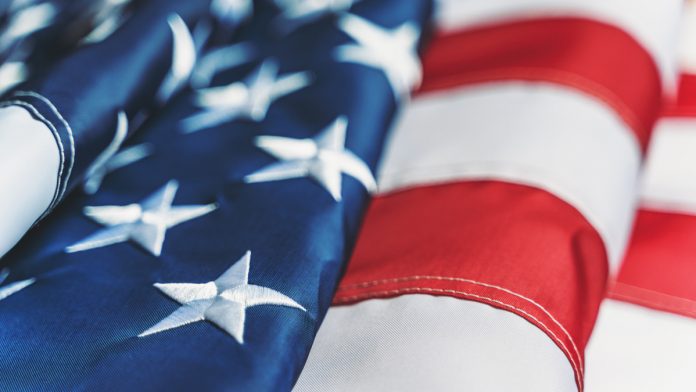SportsHandle and friends deliver another round-up of the week’s big developments in US sports betting.
Sportsbooks Need To Act Now To Avoid A Heavy-Handed Government Future
Many countries — such as the United Kingdom, Spain, and Australia, to name a few — are in the grips of a lot of hand-wringing over problem gambling, specifically online. Their respective markets are more mature than here in the U.S., and governments are stepping into the breach in an effort to stop gamblers from getting themselves in trouble, or help steer them into recovery. From advertising restrictions to disallowing credit card use for gambling, everything seems to be on the table right now.
But here in the states? Not so much. The nascent sports betting industry is like a teenager given a hot rod on their 17th birthday (we’re trying for a non “wild west” metaphor here). Each state that legalizes sport betting has their own rules, the federal government has remained hands-off since PASPA fell, and the sportsbooks — while not given carte blanche — are pretty much being given carte almost-blanche when it comes to dealing with problem gambling.
Read the full story here
How Did Colorado End Up With So Little For Program Gambling Programs?
April 30 marked the official end of the first year of live sports betting in Colorado … but seven weeks later, problem gambling programs are still waiting for money to flow from the Department of Revenue into their accounts. And advocates say that the $130,000 earmarked for problem gambling initiatives in Colorado isn’t nearly enough.
Given Colorado’s population of about 5.7 million, that $130,000 works out to less than 3 cents per capita to handle problem gambling issues. Of course, not every resident will gamble, and most gamblers won’t encounter trouble, but since the introduction of sports betting on May 1, 2020, the National Council on Problem Gambling reports that the number of calls made to the national problem gambling hotline spiked by 35%. Between May-December of 2019, there were 3,563 calls as compared to 4,834 during the same period in 2020.
Read the full story here
Brought Back From Precipice, Maine Sports Betting Bill Heads To Governor
Maine’s sports betting bill ping-ponged around Augusta Thursday and into the wee hours Friday morning, landing where it started the day — in the Senate — after the House failed to concur on an amended version of LD 1352. Finally, at 12:30 a.m. Friday, the Senate concurred via voice vote, sending the decision to legalize sports betting to Gov. Janet Mills for the second time since 2019.
The bill would allow statewide mobile wagering and requires digital platforms to be tethered to existing gaming facilities. After the Senate amended the bill in a heated session earlier Thursday, the House amended it again late in the day, and sent it back to the Senate. The House amendment would prohibit sports betting operators from offering wagers on “occurrence of injuries or penalties, the outcome of player disciplinary rulings or replay reviews.”
Read the full story here
BetMGM Maintains Its Grip On The Michigan Online Casino Market
Well, two things are clear when it comes to the online casino market in Michigan: One, BetMGM is the leader, and in May maintained its grip on the No. 1 spot for the fifth time in a row since the Jan. 22 launch with total gross receipts of more than $36 million.
And second? At least for the months of April and May, Michigan online casino players know exactly how much they want to gamble with, as the total gross receipts for May were nearly a mirror image of April’s numbers. To the dollar, then: May saw $94,851,552 in gross receipts, and April’s total was … $94,851,765.
Apparently, there’s a lot to say for consistency. Notable, however, was that May’s number marks the first time the Michigan online casino numbers did not go up month-over-month, though one $214 bet would’ve made this sentence a lie.
Read the full story here
Wall Street Largely Brushes Off Long-Term Implications Of Hindenburg Short Seller Report On DraftKings
DraftKings shares continued to rebound Wednesday one day after a well-known short seller issued a report alleging SBTech’s purported black-market dealings overseas.
Shares in DraftKings plunged nearly 11% in pre-market trading Tuesday following a report by Hindenburg Research that accused SBTech of concealing its black-market activities through a front company established in 2018. DraftKings’ shares fell below $45 on the news, sinking to near one-month lows, before rebounding on Wednesday morning to above $50 a share. At Wednesday’s high, DraftKings’ recovered all of the losses from Tuesday’s sell-off.
The report triggered a flurry of activity in DraftKings on Tuesday with trading volume of more than 87 million shares, a five-fold increase from the previous day’s session. Two actively managed funds from prominent investor Cathie Wood’s Ark ETF acquired a combined 870,299 shares during Tuesday’s session, worth more than $42.2 million.
Read the full story here
Top Sportsbooks Balk At Taking Bets On Olympic Trials, Despite Some States Allowing It
The Olympics Games, set to kick off in Tokyo, Japan late next month, look to be a go, despite strong local opposition due to lingering concerns over COVID-19. The Olympic trials in the U.S. are currently ongoing, with the highly anticipated trials for the sport of track and field to begin Friday in Oregon.
Top regulated sportsbooks in the United States are taking action on the Olympic Games, but not the trials, despite some states allowing it. Indiana and Tennessee are two leading sports betting markets that have the trials approved on their respective betting events lists. However, the likes of Michigan, New Jersey, and Illinois don’t allow wagering on the trials, according to their respective lists.
Read the full story here














